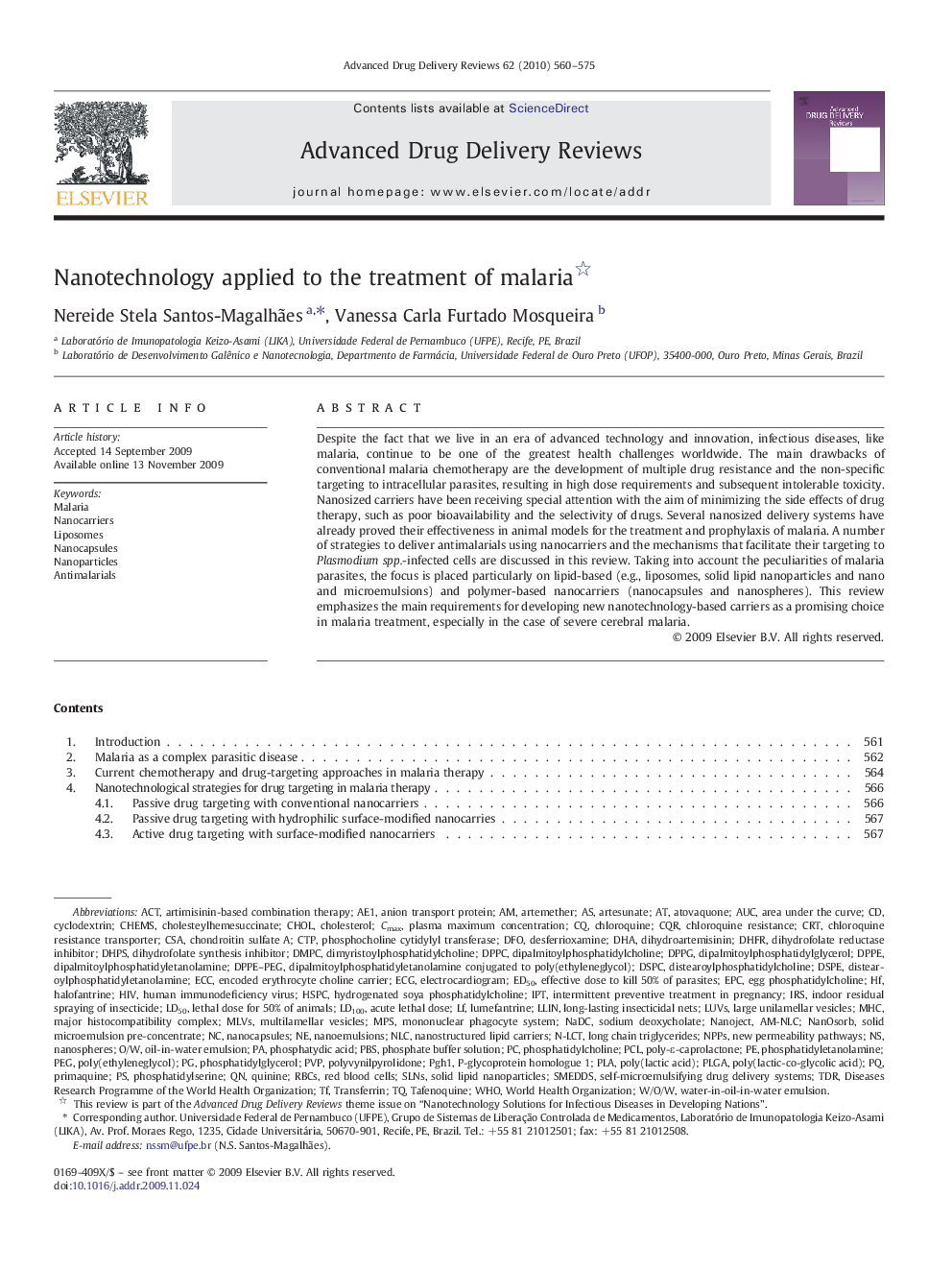| Article ID | Journal | Published Year | Pages | File Type |
|---|---|---|---|---|
| 2071448 | Advanced Drug Delivery Reviews | 2010 | 16 Pages |
Despite the fact that we live in an era of advanced technology and innovation, infectious diseases, like malaria, continue to be one of the greatest health challenges worldwide. The main drawbacks of conventional malaria chemotherapy are the development of multiple drug resistance and the non-specific targeting to intracellular parasites, resulting in high dose requirements and subsequent intolerable toxicity. Nanosized carriers have been receiving special attention with the aim of minimizing the side effects of drug therapy, such as poor bioavailability and the selectivity of drugs. Several nanosized delivery systems have already proved their effectiveness in animal models for the treatment and prophylaxis of malaria. A number of strategies to deliver antimalarials using nanocarriers and the mechanisms that facilitate their targeting to Plasmodium spp.-infected cells are discussed in this review. Taking into account the peculiarities of malaria parasites, the focus is placed particularly on lipid-based (e.g., liposomes, solid lipid nanoparticles and nano and microemulsions) and polymer-based nanocarriers (nanocapsules and nanospheres). This review emphasizes the main requirements for developing new nanotechnology-based carriers as a promising choice in malaria treatment, especially in the case of severe cerebral malaria.
